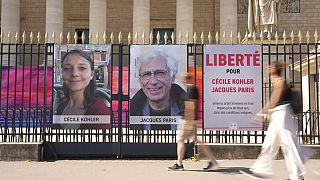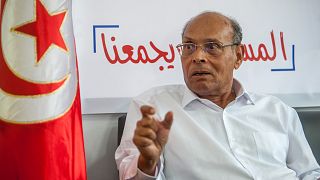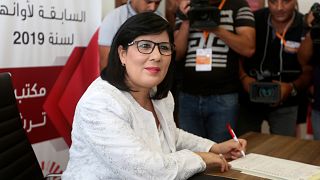Tunisia
Tunisian President Béji Caïd Essebsi has sharpened his grip on the government during the recent reshuffle by his prime minister Youssef Chahed, who must secure the confidence of Parliament on Monday, as electoral deadlines close.
Stemming from the party Nidaa Tounès, founded in 2012 by the head of state, Mr. Chahed, the youngest head of government of the modern history of the country, should easily carry the favor of the deputies: his formation and the Islamists of Ennahdha are majority in Parliament and allied to the government.
In front of the Assembly of People’s Representatives (ARP), Youssef Chahed once again spoke of a “combat government” charged with continuing to carry out “the war on terrorism, against corruption, for growth, against unemployment and regional inequalities “.
It was to “strengthen the capacity of our country in the fight against terrorism, against organized crime and smuggling” that new ministers of the interior and defense were appointed, he argued .
“Many economic indicators have improved,” Chahed said. Foreign investment grew by 7% in the first seven months of 2017, as was phosphate production (+ 34%), and the tourism sector picked up again, he said.
Youssef Chahed warned that the new composition of his government respected the “national unity” necessary for the launch of reforms.
But for observers, if the reorganized government did not upset the political balance in force between Nidaa Tounès and Ennahdha in particular, it marks an accentuation of the power of the head of state on the executive, a few months from the first municipal post-revolution and two years of legislative and presidential elections.
The new team includes prestigious men of the president and consolidates the presence of Nidaa Tounès, who had carried Béji Caïd Essebsi to the victory in 2014.
The new finance minister Ridha Chalghoum-the former minister of the deposed dictator Zine El Abidine Ben Ali- was advisor to Mr. Essebsi, as was the new health minister Slim Chaker. The Defense, Abdelkrim Zbidi, held the same post when Mr. Essebsi was Prime Minister in 2011.
Béji Caïd Essebsi, 90, “places his men”, summarizes the French newspaper Le Quotidien, for which it is obvious that “it is the president who pulls the strings”.
Independent analyst Selim Kharrat said: “Essebsi had things (already) in hand well before this reshuffle … The only difference is that it is much more blatant this time and that the Presidency hardly hides “.
To date, the president has given no indication of his intentions at the end of his five-year term in 2019. Among his critics, many voices worry about the claims of his son, Hafedh Caid Essebsi, himself an influential leader of Nidaa Tounès.
In a country still marked by decades of dictatorship, several parties and personalities have also criticized the entry to the government of former ministers of Ben Ali.
‘Insufficiency’
On the day of the reshuffle, Béji Caïd Essebsi gave an interview to two national dailies, in which he called for a review of the post-revolutionary political system, which he accuses of “paralyzing practically the government’s actions.”
“It is time to evaluate the current constitutional system in order to rectify the shortcomings and overcome the obstacles contained in the Constitution,” he said.
Adopted in early 2014 and welcomed as a successful democratic transition, this new constitution strengthened the powers of the head of government to break with the presidential regime that prevailed since independence in 1956.
At the same time, in a pre-electoral context – the municipal ones are planned in December – the challenge for the government “Chahed 2” will be to prove its ability to break with the disillusions and instability observed since the 2011 revolution .
But the seventh post-revolutionary head of government is “caught in the grip of the parties, which is constantly tightening” as the elections approach, Selim Kharrat.
AFP













00:50
Ons Jabeur retires from Wimbledon Opener due to breathing issues
00:53
Former French president Sarkozy stripped of Legion of Honour medal
02:24
Celebration and protests: Nigeria marks 26 years of uninterrupted democracy
Go to video
Thousands of people rally in support of Burkina Faso's transitional president
02:03
Libya hosts African volleyball championship
Go to video
Tunisia: new Human Rights Watch report finds dramatic increase in politically motivated arrests